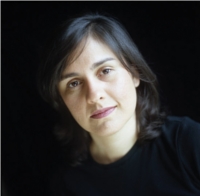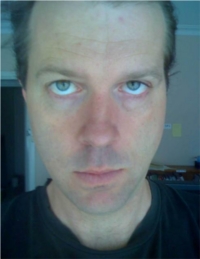Blog Archives
To speak out and to listen
It is difficult for women in Australia to express a political opinion, let alone have that opinion taken seriously, because of the stigma that still surrounds their gender. For Islamic women these difficulties are further compounded, not only in the West where prejudice against Islam is rising, but also in Islamic countries where it may be physically dangerous to speak out at all, particularly when that involves condemnation of their own government and international military forces.
Malalai Joya is a former Afghan MP and outspoken activist against the Taliban, the Northern Alliance and the presence of allied forces in Afghanistan. During the Taliban regime, Joya worked underground to promote women’s health and education for girls. At age 23, she publicly denounced the presence of warlords and criminals at a constitutional assembly and was thrown out amid tremendous uproar. Two years later, in 2005, she was elected to parliament where she was repeatedly threatened and silenced every time she attempted to speak. She has received death threats and survived multiple assassination attempts.
A fierce critic of US foreign policy and presence in the region – and recently denied an entry visa to the US after speaking out against it – Joya is firm about her position that Afghanistan is occupied not for the greater good but for the purposes of power. Tens of thousands of Afghan people have been killed by allied forces, she says, predominantly via air strikes, most of them women and children. When the dominant voices in Australia on this country’s continued involvement in the occupation of Afghanistan are our own politicians, who for eleven years have been postulating that Allied forces in the region are for the benefit of all Afghan people, hearing the voices of women like Joya becomes even more important.
Malalai Joya will be speaking at two Melbourne Writers Festival events: Big Ideas: 10 years after 9/11 – Pakistan, Afghanistan and the Struggle for Democracy and The Pity of War: Afghanistan and Iraq where she will appear on a panel with Jeff Sparrow, John Martinkus and Karen Middleton. Joya’s appearance at the Melbourne Writers Festival is sponsored by Overland Literary Journal, the forthcoming edition of which features her in an extended interview. Overland 204 is being launched by Sophie Cunningham as part of the MWF on 27 August.
‘Thwarted by the general drift of society’: celebrating George Orwell
 Yesterday afternoon, Gideon Haigh and Alan Attwood got together with Overland editor Jeff Sparrow to discuss the life and work of George Orwell, 60 years after his passing. Nineteen Eighty-Four is one of my favourite novels, but I am not so familiar with Orwell’s nonfiction – but I tell you what, Haigh and Attwood’s discussion, and the segments they read, made me want to get to know Orwell intimately. They mentioned such things as the simple and almost timeless language; Attwood mentioned Orwell’s ‘extraordinary grasp of detail’ but also his ‘powerful sense of humanity’; and Haigh noted Orwell’s sincerity and intellectual honesty – as opposed to a lot of today’s ‘phoniness’ and opinion for the sake of having an opinion. Orwell, even in his personal nonfiction, remains disembodied and humble. His consistent enemy was ‘orthodoxy’ and he was aware of contradictions, as in the class systems, but as a writer, ‘Orwell never shouts’, the speakers agreed.
Yesterday afternoon, Gideon Haigh and Alan Attwood got together with Overland editor Jeff Sparrow to discuss the life and work of George Orwell, 60 years after his passing. Nineteen Eighty-Four is one of my favourite novels, but I am not so familiar with Orwell’s nonfiction – but I tell you what, Haigh and Attwood’s discussion, and the segments they read, made me want to get to know Orwell intimately. They mentioned such things as the simple and almost timeless language; Attwood mentioned Orwell’s ‘extraordinary grasp of detail’ but also his ‘powerful sense of humanity’; and Haigh noted Orwell’s sincerity and intellectual honesty – as opposed to a lot of today’s ‘phoniness’ and opinion for the sake of having an opinion. Orwell, even in his personal nonfiction, remains disembodied and humble. His consistent enemy was ‘orthodoxy’ and he was aware of contradictions, as in the class systems, but as a writer, ‘Orwell never shouts’, the speakers agreed.
I’ll share with you this section that Haigh read from an essay called ‘The Prevention of Literature’ (and I highly encourage you to read it in full) which demonstates the enduring relevance of Orwell’s prose and themes:
‘In our age, the idea of intellectual liberty is under attack from two directions. On the one side are its theoretical enemies, the apologists of totalitarianism, and on the other its immediate, practical enemies, monopoly and bureaucracy. Any writer or journalist who wants to retain his integrity finds himself thwarted by the general drift of society rather than by active persecution. The sort of things that are working against him are the concentration of the press in the hands of a few rich men, the grip of monopoly on radio and the films, the unwillingness of the public to spend money on books, making it necessary for nearly every writer to earn part of his living by hackwork, the encroachment of official bodies like the M.O.I. [Ministry of Information] and the British Council, which help the writer to keep alive but also waste his time and dictate his opinions, and the continuous war atmosphere of the past ten years, whose distorting effects no one has been able to escape. Everything in our age conspires to turn the writer, and every other kind of artist as well, into a minor official, working on themes handed down from above and never telling what seems to him the whole of the truth. But in struggling against this fate he gets no help from his own side; that is, there is no large body of opinion which will assure him that he’s in the right. In the past, at any rate throughout the Protestant centuries, the idea of rebellion and the idea of intellectual integrity were mixed up. A heretic–political, moral, religious, or aesthetic–was one who refused to outrage his own conscience.’
Attwood mentioned that today, Orwell might in fact be a blogger. What do you think?
You can find more of Orwell’s works collected online, here.
Great Exhalations
 I had awoken to find a sparkling crust had formed on one side of my pillow. Either two slugs had taken residence in my nose, or my flu was progressively worsening. I could feel the gridlock of snot in the freeways behind my face, so I think it was safe to say that my immune system would be earning it’s keep. During one of the most illuminating, if not necessary, talks of the MWF my sickness began to take it’s toll. I was finding it hard to balance the urgency of bodily functions and maintain the solemnity of the discussions. I was desperate to cough out the residue of my illness, but the talk on the writer’s role in political activism was so important, that I was loath to interrupt in any way.
I had awoken to find a sparkling crust had formed on one side of my pillow. Either two slugs had taken residence in my nose, or my flu was progressively worsening. I could feel the gridlock of snot in the freeways behind my face, so I think it was safe to say that my immune system would be earning it’s keep. During one of the most illuminating, if not necessary, talks of the MWF my sickness began to take it’s toll. I was finding it hard to balance the urgency of bodily functions and maintain the solemnity of the discussions. I was desperate to cough out the residue of my illness, but the talk on the writer’s role in political activism was so important, that I was loath to interrupt in any way.
As Pettina Gappah was commenting on the important role fiction plays in subversively bringing political agendas to the fore, my person began to buckle under the pressure of ick. I knew coughing out loud would detract from the discussion, so my only alternative was to cough out quiet. I did my best slow motion cough. A painfully slow lung heave that sounded like a toothless dog gumming a chew toy. My gurgling exhalations had gotten so bad that a woman passed me a tissue. I gratefully snatched it, emptying my throat into the ply. Then she gingerly offered me a blue biro. I looked down at the tissue, which looked an awful lot like a petition against the parallel importing of books in Australia.
My nose is still running, but nowhere near as fast as I am.
by Frenchelbow
Festival Blogger
Dead Under Fluorescent Lights
Whither goest thou, media?

Margaret Simons
With all the problems facing traditional news media as we know it — the proliferation of media outlets, the decentralisation of power from the traditional strongholds of Packer-esque families, the advent of online content and the increase in citizen journalism — Finding Meaning in the Media might well have been considered a self-help session. Instead, Margaret Simons and vigorous chair Jeff Sparrow held forth on these issues in a most adroit fashion.
Change is natural in any context. But in relation to journalistic media, one of the most important changes has been what people want from it. No longer do people wait for the newspaper to be published; they can simply hop online and find out through Twitter or news websites. So does this mean that there is less demand for news content? Simons thinks not. In fact, ‘there is no evidence for a declining appetite for news.’ The figures for print are declining, but throw online content into the mix, and you get a better picture of the increased demand for news.
Newspapers, then, are declining in their ‘social purpose’. News media consumers should be wary of this breakdown, as this means that there will be fewer professional brokers of information, whether it’s simple reporting or more involved investigative journalism, In that case, where will we get our news from? The internet is the obvious place to look, with dissemination models ranging from single-person blogs to niche providers such as Crikey’s incredibly successful Eureka Report. Not only does this media revolution affect our news paradigms, says Simons, but also how we organise our societies.
What path then for young people just getting their journalistic shoes on? Simons, a tongue-in-cheek shill, suggested the new course she has put together at Swinburne University, which includes traditional elements such as writing skills and good old fashioned story-seeking research; but also elements that embrace the specificities of new media spaces, including how to facilitate community and using social networking platforms. The most interesting thing to come out of Simons’s involvement with Swinburne is, to my mind, the Foundation for Public Interest Journalism, which investigates new models of journalism. One such model is a direct journalist-audience relationship, where a journalist can list their areas of interest or loose pitches and audiences can fund articles of interest, similar to Etsy’s successful Alchemy marketplace or the Kickstarter artist funding program.
Margaret’s book The Content Makers is due out in September through Penguin: probably a must-read for anyone who read more than the first line of this post.
Estelle Tang, 3000 BOOKS
Festival Blogger
Jeff Sparrow and ‘Killing’

Jeff Sparrow
When Jeff Sparrow began the research process for his book Killing, he found that ‘talking about killing is like talking about sex’: there are a whole series of anxieties that will influence people’s answers. Nevertheless, he found the topic fascinating and its exploration necessary, as ‘we have a responsibility to confront these issues’, particularly in light of the fact that, indirectly, we ask or allow people to kill every day.
After Sparrow first began exploring this controversial topic, spurred by the unearthing of a Turkish soldier’s head in Echuca, he found that very little research had actually been done, and that the existing research was a body of contradictions. His first step towards understanding killing and its effects on the killers was to spend some time with kangaroo hunters, as animal slaughter was a common analogy made by soldiers describing the experience of killing another human being for the first time.
In response to Sophie Cunningham’s question, ‘Are we desensitised towards killing?’, Sparrow described how the contemporary act of killing is generally mediated, at least in state-sanctioned contexts, and this gives rise to problems of its own. While society, in addition to individual killers or executioners, has always been implicated in the carrying out of killing, there is now much less direct or individual human involvement in state-sanctioned killing. Compared to medieval executions, which were gruesome public ceremonies, Sparrow described modern execution — as practised in the United States — as a sanitised, private, bureaucratic process, with protocols and tiny components that are rehearsed to the point of mechanics. This ostensibly makes execution easier for the executioner, but Sparrow said it means they don’t feel anything at all, and this itself becomes the trauma.
Sparrow raised some fascinating issues regarding killing and class. He suggested that killing is generally done by working-class people, and that there is no inter-class vocabulary to discuss this. We’re not even supposed to talk about it. Meanwhile, working-class people were being persuaded to contribute to the war machine by ‘the transformative narrative of war’. Sparrow spoke of the World War II anti-war poets who challenged this narrative as untrue; who discovered that war comprised not only awful acts of killing, but the same menial things they did at home; who realised that the reality of war is being a cog in the army’s bureaucracy.
Truly a fascinating topic, examined by a passionate and compassionate individual. I’m looking forward to reading Killing: it’s in my book stack, and ready to go.
Estelle Tang, 3000 BOOKS
Festival Blogger

